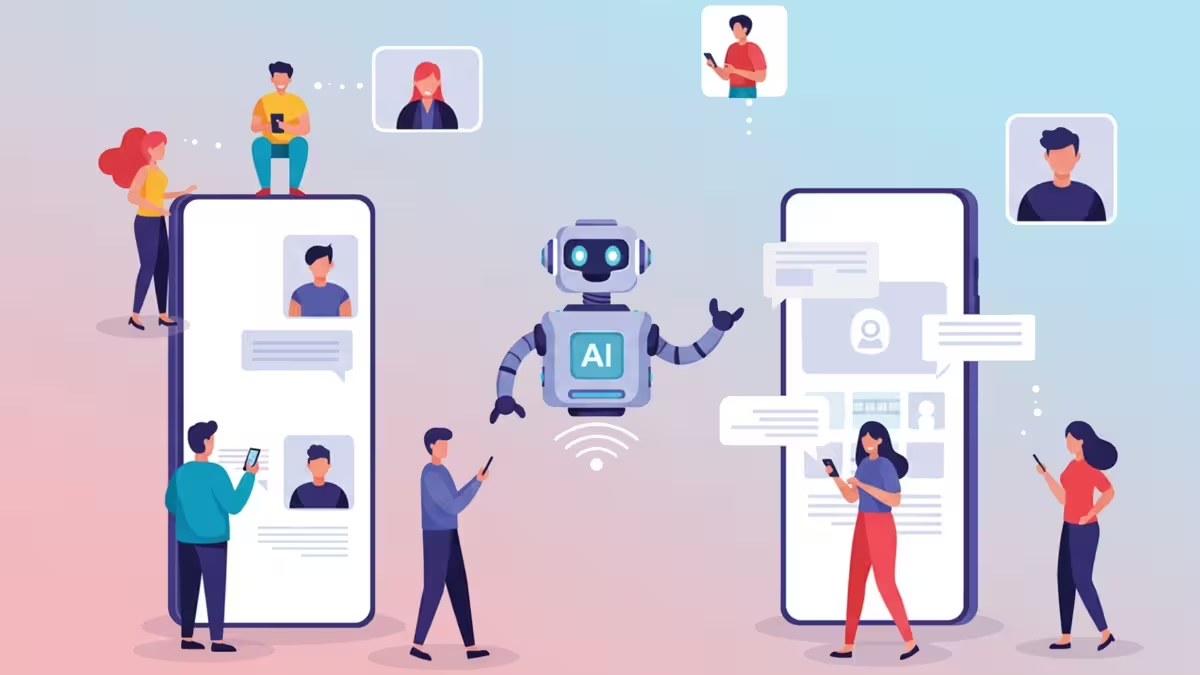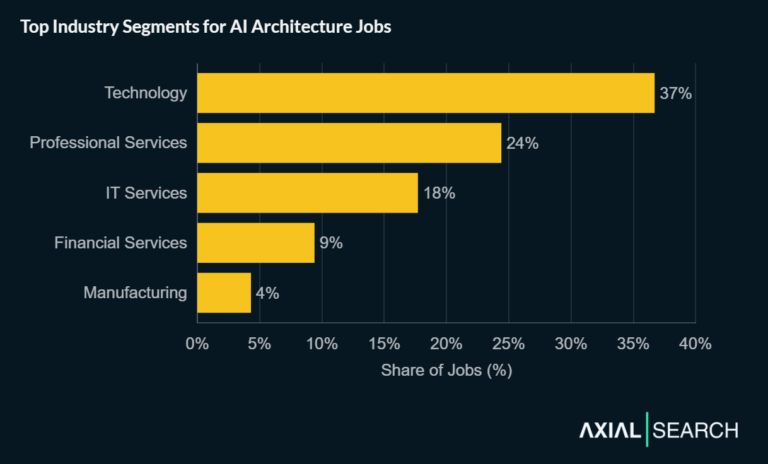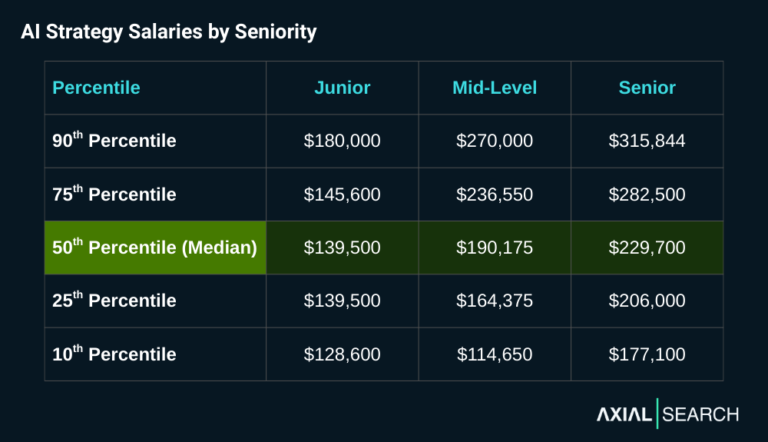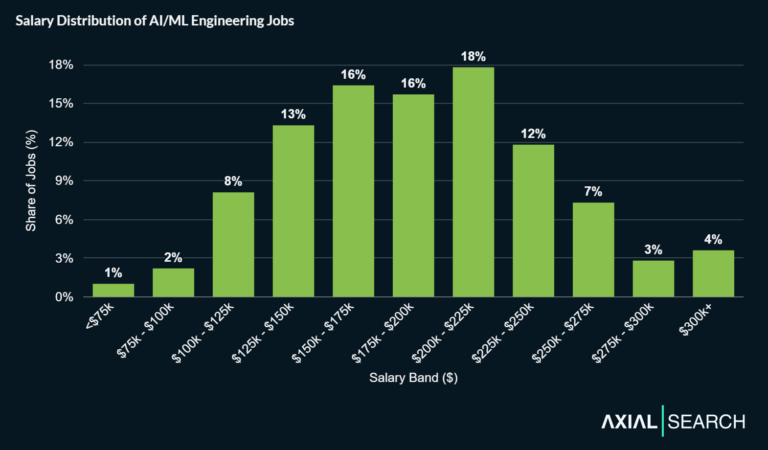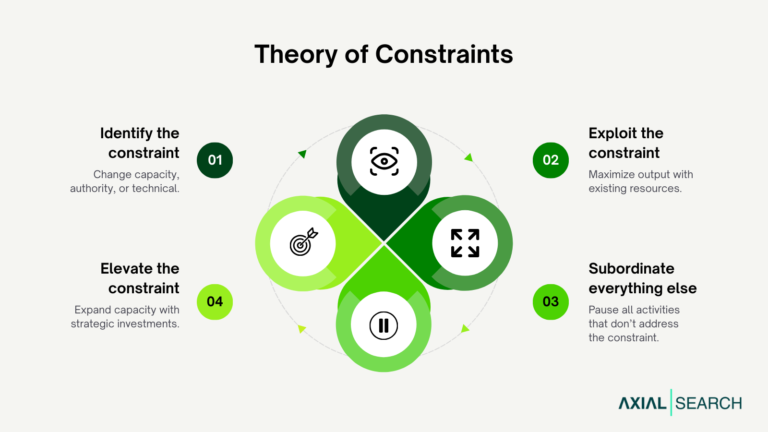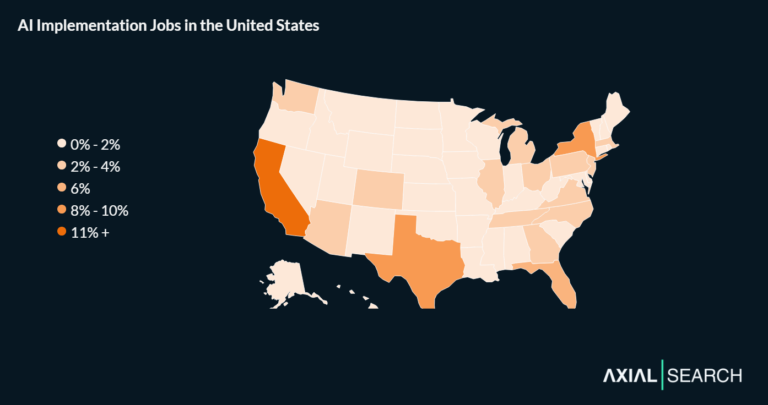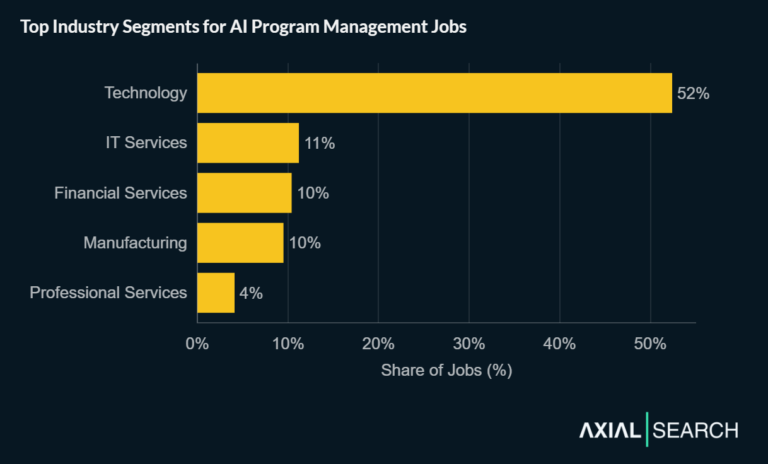Understanding the role of an AI automation engineer
AI automation engineer roles are becoming indispensable as organizations look to turn AI advances into real productivity gains. AI automation is not simply about scripted workflows but about intelligent systems that learn, adapt and execute at scale. AI automation engineers design and deploy those systems, integrating machine learning, data and process automation to drive speed, accuracy and resilience across the enterprise.
Recent results show how powerful this shift can be. In a large field experiment, consultants using GPT-4 completed tasks 12.2% more, 25.1% faster and with 40% higher quality than their counterparts. Similarly, AWS found developers using Amazon CodeWhisperer finished tasks 57% faster in productivity challenges. These outcomes demonstrate how well-designed AI tools can transform performance when embedded directly into how work gets done.
AI automation engineers make that transformation operational. They build the infrastructure that turns models into scalable systems, working with data scientists and developers to automate high-value processes safely and efficiently. With their expertise, companies reduce costs, improve output and unlock new capacity for innovation. Without them, automation stays fragmented and the potential of AI remains trapped in isolated experiments.
Takeaway: AI automation engineers create measurable business impact through intelligent systems that dramatically improve task completion speed, quality, and throughput across diverse organizational functions.
What key responsibilities do AI automation engineers have?
AI automation engineers design, build, and maintain systems that integrate AI capabilities into automated business processes. Their work requires strong technical skills in software development, system integration, and machine learning implementation.
Core technical responsibilities center on developing and deploying automation solutions:
- Automation Workflow Development: Design and code automated workflows that incorporate AI/ML models into business processes, using programming languages like Python and automation frameworks to create end-to-end solutions.
- System Integration: Build APIs, connectors, and integrations between AI models and enterprise applications, ensuring seamless data flow and process execution across existing technology stacks.
- AI-Powered Process Automation: Develop intelligent automation solutions that combine AI capabilities with robotic process automation to understand documents, extract data, make decisions, and execute complex workflows.
- MLOps Pipeline Implementation: Build and maintain continuous integration and deployment pipelines for machine learning models, including automated testing, versioning, deployment, and rollback capabilities.
- Testing and Validation: Create comprehensive test suites for automated processes, validating AI model outputs, workflow logic, error handling, and integration points to ensure reliability.
Implementation and maintenance form critical ongoing responsibilities:
- Performance Optimization: Analyze and improve automation efficiency, reducing latency, optimizing resource usage, and enhancing throughput for production AI systems.
- Monitoring and Troubleshooting: Deploy monitoring solutions to track automation health, model performance, and system metrics; debug issues and implement fixes to maintain uptime and reliability.
- Production Support: Maintain deployed automation systems, responding to incidents, updating models and code, and ensuring continuous operation of AI-powered workflows.
Takeaway: AI automation engineer responsibilities focus on hands-on development of AI-integrated automation systems, including workflow design, system integration, MLOps implementation, and ongoing maintenance of production solutions.
How do AI automation specialist jobs fit into an organization?
AI automation specialist positions typically integrate across multiple organizational functions, requiring coordination with legal, compliance, security, and business stakeholders to manage risks and ensure successful implementations.
Organizational structure varies based on automation maturity and scope. Gartner advises establishing a centralized RPA Center of Excellence with executive sponsorship—often under IT or operations—and engaging stakeholders across business units, IT, risk, security, and compliance to scale automation effectively.
Compliance and governance create critical partnerships. EEOC guidance on software, algorithms, and AI used in employment decisions underscores compliance with civil rights laws. This means AI practitioners must coordinate closely with HR and legal teams when building automation that affects hiring, promotion, or other employment actions.
Enterprise-scale implementations require comprehensive stakeholder engagement. NIST’s AI Risk Management Framework Playbook calls for multidisciplinary engagement across legal, compliance, privacy, security, safety, human factors, procurement, and operations. AI automation engineers must understand AI strategy and coordinate with these functions to manage risks throughout the AI lifecycle.
Successful governance models emphasize cross-functional collaboration. Salesforce recommends an AI Center of Excellence sponsored by a CIO or CDO and staffed cross-functionally with IT, security, legal, HR, data governance, and business lines. This maps the core departments AI automation engineers collaborate with to drive successful implementations.
Takeaway: AI automation specialist jobs require extensive cross-functional collaboration, typically reporting through IT or operations while maintaining critical partnerships with legal, compliance, HR, and business stakeholders to manage risks and ensure successful automation delivery.
Core skills for AI automation jobs
Success in AI automation engineering requires a strong foundation in software development, deep knowledge of AI/ML technologies, and the ability to integrate complex systems while ensuring reliability and performance.
Core programming and engineering capabilities form the basis of effective automation work:
- Python Proficiency: Write production-quality Python code for automation workflows, data processing, API development, and ML model integration with strong software engineering practices.
- API Development and Integration: Design and build RESTful APIs, integrate third-party services, and create robust connectors between AI models and enterprise systems.
- Software Engineering Fundamentals: Apply version control (Git), testing frameworks, debugging techniques, code review practices, and software design patterns to maintain quality codebases.
- Database and Data Management: Work with SQL and NoSQL databases, design data schemas, optimize queries, and manage data pipelines that feed AI systems.
Specialized AI skills enable the development of intelligent automation solutions:
- LLM Integration and Prompt Engineering: Design effective prompts, implement function calling, manage context windows, and optimize LLM performance for automated workflows.
- Agent Framework Development: Build multi-step AI agents that plan tasks, use tools, maintain memory, and execute complex automation sequences.
- RAG System Design: Implement retrieval-augmented generation architectures using embeddings, vector search, and chunking strategies to ground AI outputs in enterprise data.
- Model Deployment and Serving: Deploy ML models to production environments, manage inference endpoints, optimize for latency and throughput, and implement model versioning.
Production deployment requires strong infrastructure and operational skills:
- Cloud Platform Expertise: Deploy and manage AI systems on cloud platforms (AWS, Azure, or GCP), leveraging managed services for scalability and reliability.
- Container and Orchestration: Use Docker for containerization and Kubernetes for orchestrating containerized AI services at scale.
- MLOps Pipeline Development: Build CI/CD pipelines for ML workflows, automate model training and deployment, implement monitoring, and enable reproducible experiments.
- Workflow Orchestration: Use tools like Apache Airflow or similar platforms to schedule, monitor, and manage complex data and ML pipelines.
Ensuring reliable, efficient automation requires rigorous quality practices:
- Testing and Validation: Develop comprehensive test suites for automation workflows, validate AI outputs, implement error handling, and ensure system reliability.
- Performance Optimization: Profile code, optimize inference speed, manage resource utilization, and implement caching strategies for responsive systems.
- Monitoring and Observability: Implement logging, metrics collection, alerting systems, and dashboards to track automation health and performance in production.
- Quality Evaluation: Build evaluation frameworks to assess AI output quality, accuracy, bias, and safety using both automated metrics and human review processes.
Cross-functional work demands strong interpersonal and analytical capabilities:
- Analytical Thinking: Diagnose process bottlenecks, identify automation opportunities, troubleshoot complex issues, and design effective technical solutions.
- Communication and Collaboration: Work effectively with data scientists, business stakeholders, and IT teams to translate requirements into technical implementations.
- Documentation: Create clear technical documentation, API specifications, and runbooks to support knowledge sharing and system maintenance.
Takeaway: Core skills for AI automation jobs center on strong software engineering fundamentals, AI/ML implementation expertise, cloud infrastructure management, and quality assurance practices—combined with analytical thinking and collaboration abilities to deliver reliable enterprise automation solutions.
What frameworks drive success in AI automation specialist jobs?
AI automation specialists rely on structured frameworks and methodologies to manage complexity, ensure quality, and deliver reliable automation solutions. Mastery of multiple approaches enables practitioners to select the optimal framework for each situation.
Process improvement and automation frameworks provide systematic approaches:
- Process Mining Methodology: Apply discovery–conformance–enhancement to extract event logs, discover real process flows, check conformance to desired models, and identify high-impact automation opportunities.
- Value Stream Mapping: Map current and future-state value streams to expose waste, handoffs, and bottlenecks where AI automation yields the highest throughput and lead-time improvements.
- BPMN 2.0 Modeling: Model end-to-end workflows, decisions, and events to enable clear specification and smooth handoff from process design to automation implementation and monitoring.
AI lifecycle and risk management frameworks ensure trustworthy implementations:
- NIST AI Risk Management Framework: Use Govern-Map-Measure-Manage functions as a lifecycle mental model to identify, assess, and mitigate AI system risks in automation, aligning controls to business context and impacts.
- NIST Generative AI Profile: Map risks and mitigations to specific genAI automation use cases across the lifecycle, including data, model, and human-in-the-loop considerations.
- V-Model for AI Systems: Apply requirements traceability and rigorous verification/validation of AI-enabled automation within the broader system lifecycle context.
Machine learning and data operations frameworks guide technical implementation:
- Google’s Rules of ML: Prioritize simplicity, focus on data and pipeline quality, establish baselines, and design for monitoring before adding complexity to automation systems.
- DataOps Principles: Adopt collaboration, continuous integration, testability, and observability for data pipelines to ensure reliable, change-ready automations.
- Technical Debt in ML: Use this mental model to mitigate data dependencies, configuration debt, and boundary erosion that commonly undermine automated ML systems in production.
Quality assurance and readiness frameworks support reliable deployment:
- ML Automation Readiness Assessment: Assess automation readiness with rubrics covering data, model, and infrastructure tests to reduce operational risk and improve reliability before scale-up.
Takeaway: Success in AI automation specialist jobs requires mastery of process improvement methodologies, AI risk management frameworks, MLOps best practices, and quality assurance approaches to deliver reliable, compliant automation solutions.
Which software tools do you need as an AI automation engineer?
AI automation engineers work with diverse software categories spanning AI platforms, automation tools, infrastructure management, and monitoring systems. Proficiency across these tools enables end-to-end automation solution development and deployment.
AI and machine learning platforms provide core capabilities:
- OpenAI Platform: Access GPT-4o and the Assistants API to build task automation for extraction, classification, summarization, code generation, and tool use.
- AWS Bedrock: Build generative AI applications with managed access to multiple foundation models, agents, knowledge bases, and guardrails in enterprise environments.
- Google Vertex AI: Train, tune, and deploy models with pipelines, predictions, vector search, and generative AI tooling on Google Cloud Platform.
- TensorFlow: Build, train, evaluate, and deploy models for vision, NLP, and core ML use cases requiring hands-on model development capabilities.
Automation and workflow platforms enable intelligent process automation:
- UiPath AI Center: Deploy, manage, and continually improve machine learning models inside automation workflows with model packaging, retraining, and data labeling integrated with Orchestrator.
- Automation Anywhere: Build, orchestrate, and scale intelligent automation using the Automation Success Platform, including generative AI features like Automation Co-Pilot and Document Automation.
- Microsoft Power Automate: Automate workflows and embed AI models for document processing, prediction, and text classification directly in flows using AI Builder.
Development and orchestration frameworks support custom automation development:
- LangChain: Framework for building agents, tool use, and retrieval workflows with integration to vector databases and multiple model providers.
- LlamaIndex: Connect LLMs to data with indexing, retrieval, and query engines to power automation assistants and workflows.
- Apache Airflow: Programmatically author, schedule, and monitor workflows widely used to run data and ML pipelines that power automation systems.
- Prefect: Orchestrate, schedule, and observe Python-based workflows with task retries and dependency management for automation DAGs.
Infrastructure and deployment tools ensure scalable operations:
- Kubernetes: Automate deployment, scaling, and management of containerized services to run model APIs and automation microservices at scale.
- Docker: Package and run applications as containers for reproducible automation workers and model inference services.
- GitHub Actions: Automate build, test, and deployment workflows for ML services, data pipelines, and infrastructure-as-code.
MLOps and monitoring platforms support production readiness:
- MLflow: Track experiments, package models, and manage deployments via the Model Registry as a core MLOps tool for automation projects.
- Feast: Open-source feature store to manage, version, and serve features consistently for online and batch ML in automation systems.
- Evidently: Open-source monitoring to detect data drift, target drift, and model performance issues with comprehensive reports and dashboards.
- Pinecone: Managed vector database for similarity search and retrieval, enabling production-grade RAG pipelines in automation systems.
Takeaway: AI automation engineers need proficiency across AI platforms, automation tools, orchestration frameworks, infrastructure management, and monitoring systems to develop, deploy, and maintain enterprise-scale intelligent automation solutions.
AI automation engineer qualifications
AI automation engineering welcomes diverse educational backgrounds while emphasizing practical experience and demonstrated capabilities over specific degree requirements. The field values technical proficiency, problem-solving abilities, and understanding of both AI technologies and business processes.
Educational foundations typically include bachelor’s degrees in computer science, engineering, data science, mathematics, or related technical fields. Among professional developers, the most common highest level of education is a bachelor’s degree, with master’s degrees being the next most common. This pattern aligns with the educational profile of many AI automation engineers.
Advanced degrees provide advantages for research-intensive roles. U.S. institutions are graduating a record number of AI-focused PhDs, reinforcing that master’s and PhD pathways feed research-intensive AI engineering positions that focus on developing novel automation approaches.
Professional experience often matters more than specific educational credentials. Employers prioritize demonstrated experience with machine learning model development, process automation implementation, and software engineering practices. Many successful practitioners transition from related fields including software development, data science, systems engineering, and business process management.
Industry-specific knowledge creates competitive advantages. Healthcare organizations value familiarity with clinical workflows and regulatory compliance frameworks. Financial services prioritizes understanding of risk management and audit requirements. Manufacturing emphasizes knowledge of operational technology and safety protocols.
Technical skills assessment focuses on practical capabilities rather than academic credentials. Employers evaluate proficiency in programming languages like Python and SQL, experience with cloud platforms, understanding of machine learning concepts, and ability to integrate diverse systems and technologies.
Cross-functional collaboration skills are increasingly critical. The role requires working effectively with business stakeholders, IT teams, compliance professionals, and end users to understand requirements, manage implementations, and ensure adoption of automation solutions.
Takeaway: AI automation engineer qualifications emphasize technical proficiency and practical experience over specific degrees, with bachelor’s-level education typically sufficient and industry-specific knowledge providing competitive advantages for career advancement.
Which certifications matter most for AI automation jobs?
Professional certifications validate expertise and demonstrate commitment to best practices in AI automation engineering. Several categories of credentials enhance career prospects and provide structured learning paths for skill development.
Cloud AI and machine learning certifications establish foundational competencies:
- AWS Certified AI Practitioner: Foundational credential validating knowledge of AI/ML and generative AI concepts, responsible AI practices, and building AI-enabled applications using AWS services.
- Microsoft Azure AI Engineer: Proves skills to build, manage, and deploy AI solutions using Azure AI services including Azure OpenAI, Cognitive Services, and orchestration aligned to enterprise scenarios.
- Google Cloud Machine Learning Engineer: Demonstrates capability to design, build, and productionize ML models on Google Cloud, including ML pipeline automation, orchestration, and monitoring.
Specialized AI and automation platform certifications provide vendor-specific expertise:
- TensorFlow Developer Certificate: Assesses ability to build, train, evaluate, and deploy models with TensorFlow for vision, NLP, and core ML applications, signaling hands-on model development skills.
- UiPath Advanced RPA Developer: Recognizes advanced skills to design, develop, and deploy complex automations on the UiPath platform, core for AI-enabled robotic process automation.
- Automation Anywhere Advanced RPA Professional: Validates advanced proficiency in architecting and building bots on Automation 360, including complex workflows, governance, and best practices.
Infrastructure and orchestration certifications support production deployment:
- Certified Kubernetes Administrator (CKA): Confirms competence to install, configure, and administer Kubernetes clusters—foundational for deploying containerized AI/ML services and automation at scale.
Takeaway: AI automation certifications span cloud AI platforms, specialized automation tools, and infrastructure management, with cloud AI credentials providing broad foundation and platform-specific certifications demonstrating hands-on automation development expertise.
Career opportunities for AI automation engineers
AI automation engineering offers diverse career paths with strong growth prospects across multiple industries and organizational contexts. The field provides opportunities for specialization, leadership advancement, and transition between sectors as automation adoption accelerates.
Industry demand concentrates in key sectors with substantial automation potential. AI-related job postings are concentrated in Information (technology), Professional, Scientific, and Technical Services, and Finance & Insurance, with Manufacturing also significant. This indicates strong sector demand for AI automation talent across diverse organizational contexts.
High-value use cases drive career opportunities. McKinsey estimates large generative AI value in banking, high tech, retail/CPG, and life sciences, with outsized impact in customer operations, marketing and sales, software engineering, and R&D. These areas represent prime opportunities for AI automation engineering roles.
Typical career progression follows increasing scope and technical complexity:
- AI Automation Analyst: Entry-level roles supporting automation development and testing
- AI Automation Engineer: Mid-level positions designing and implementing automation solutions
- Senior AI Automation Engineer: Advanced roles leading complex programs and technical architecture
- Principal AI Automation Engineer: Expert-level positions driving innovation and best practices
- Director of AI Automation: Leadership roles managing teams and strategic automation initiatives
Research and development paths offer specialized opportunities. Computer and information research scientists typically need master’s degrees in computer science or related fields, with employment projected to grow 23% from 2022 to 2032. This reflects the pathway for research-intensive AI automation roles.
Industry-specific expertise creates advancement opportunities. The Microsoft Azure AI Engineer role builds, manages, and deploys AI solutions using Azure AI services, providing a certification-backed route into AI automation work with clear progression opportunities.
Takeaway: AI automation engineer career opportunities span from analyst to director levels across technology, finance, and manufacturing sectors, with strong growth projections and multiple paths for specialization in research, industry-specific applications, and technical leadership.
What associations support AI automation specialist jobs?
Professional associations provide essential networking, education, and career development resources for AI automation specialists. Active participation in relevant organizations enhances professional credibility and provides access to emerging trends and best practices.
AI and machine learning associations offer foundational resources:
- Association for the Advancement of Artificial Intelligence (AAAI): Leading professional society for AI research and practice, valuable for accessing conferences, publications, and a community advancing intelligent systems and automation applications.
- ACM Special Interest Group on Artificial Intelligence (SIGAI): ACM’s community focused on AI across research and industry, supporting workshops, policy discussions, and practitioner engagement relevant to building AI-powered automation solutions.
Automation and robotics associations provide industry-specific focus:
- Association for Advancing Automation: Industry association spanning robotics, machine vision, motion control, and AI in automation, providing networking, events, and resources for deploying intelligent automation across manufacturing and service industries.
- IEEE Robotics and Automation Society: Global community advancing robotics and automation in industry and services, highly relevant for engineers integrating AI into automated systems and workflows.
Professional standards and certification organizations support skill development:
- International Society of Automation (ISA): Professional association for industrial automation, standards development, and systems integration (including ISA-88/95), supporting the application of AI in control systems and operational efficiency improvement.
Takeaway: Professional associations like AAAI, ACM SIGAI, and the Association for Advancing Automation provide essential networking, education, and credentialing opportunities that advance AI automation specialist careers through community engagement and professional development.
Which industry events benefit AI automation specialists?
Industry conferences and events provide critical learning opportunities, networking connections, and exposure to emerging trends that advance AI automation careers. Strategic attendance at key events accelerates professional development and market awareness.
Premier AI and automation conferences offer comprehensive coverage:
- NVIDIA GTC: Flagship AI developer conference focused on AI engineering, accelerated computing, and real-world automation use cases at scale, featuring technical sessions and hands-on workshops.
- The AI Summit: Enterprise AI event focused on applied AI, automation strategies, and scaling AI initiatives across industries with case studies and implementation guidance.
Cloud and platform-specific events provide technical depth:
- Google Cloud Next: Major cloud and AI conference highlighting GenAI, Vertex AI, MLOps, data engineering, and automation patterns for scalable enterprise workloads.
- AWS re:Invent: Premier cloud event with deep coverage of AI/ML services, MLOps, AIOps, and automation patterns for scalable enterprise implementations.
- Microsoft Build: Developer-focused event covering Copilot, Azure AI, automation tooling, and end-to-end AI application engineering with hands-on technical content.
Automation platform and vendor conferences offer specialized expertise:
- UiPath FORWARD: Flagship intelligent automation conference featuring enterprise RPA, AI-powered orchestration, and automation operating models with vendor and customer case studies.
- Automation Anywhere Imagine: RPA and AI automation conference focused on deploying and scaling intelligent automation programs with technical sessions and best practices.
Data and analytics events address foundational requirements:
- Databricks Data + AI Summit: Industry-leading event for data engineering, MLOps, LLMOps, and productionizing AI-driven automation on the lakehouse architecture.
- Celonis Process Mining World: Process mining and execution management summit showcasing AI-driven process automation and optimization at enterprise scale.
Cloud-native and infrastructure conferences support deployment expertise:
- KubeCon + CloudNativeCon: Core cloud-native conference covering Kubernetes, AI/ML workloads, platform engineering, and automation at scale with technical deep-dives.
- IBM Think: Enterprise technology conference with strong focus on AI, automation platforms, hybrid cloud, and AIOps with strategic and technical content.
Takeaway: AI automation specialists benefit from attending premier AI conferences like NVIDIA GTC and The AI Summit, cloud platform events like Google Next and AWS re:Invent, and specialized automation conferences like UiPath FORWARD to stay current with emerging technologies and implementation best practices.
AI automation engineer compensation insights
AI automation engineer compensation reflects strong market demand for specialized skills, with significant variation based on experience level, geographic location, industry sector, and specific technical capabilities. Total compensation typically includes base salary, performance bonuses, and equity components.
Salary ranges span from entry-level to senior positions. Talent.com reports the average AI Automation Engineer salary in the US around the mid-$120Ks, with entry-level positions starting near $100,000 per year. This anchors an entry range of roughly $110,000–$180,000 depending on market conditions and employer requirements.
Market data shows substantial range across experience levels:
- Entry Level (0-2 years): Base salaries typically range from $100,000–$130,000, with total compensation including bonuses and equity reaching $110,000–$150,000 in major markets.
- Mid Level (3-5 years): Experienced practitioners see base salaries of $130,000–$160,000, with total compensation packages often reaching $150,000–$200,000.
- Senior Level (6+ years): Senior engineers command base salaries of $160,000–$220,000, with total compensation frequently exceeding $250,000 in competitive markets.
- Principal/Staff Level: Expert-level positions reach $200,000–$300,000+ in total compensation, reflecting specialized expertise and technical leadership responsibilities.
Salary distribution shows broad ranges reflecting skill and market variations. ZipRecruiter’s AI Automation Engineer salary distribution shows a broad US range reaching into the $160K+ tier for top earners and certain locations, while lower quartiles sit closer to the $90K range for entry-level positions in smaller markets.
Takeaway: AI automation engineer compensation ranges from $100K+ for entry-level positions to $300K+ for senior roles, with total packages including bonuses and equity that can increase earnings by 25-40% above base salary in competitive markets.
Final thoughts
AI automation engineering represents one of the most promising and impactful career paths in today’s technology landscape. As organizations race to implement AI-driven efficiencies and competitive advantages, skilled practitioners who can bridge the gap between cutting-edge AI capabilities and practical business automation will continue to see exceptional demand and career growth opportunities across industries.

